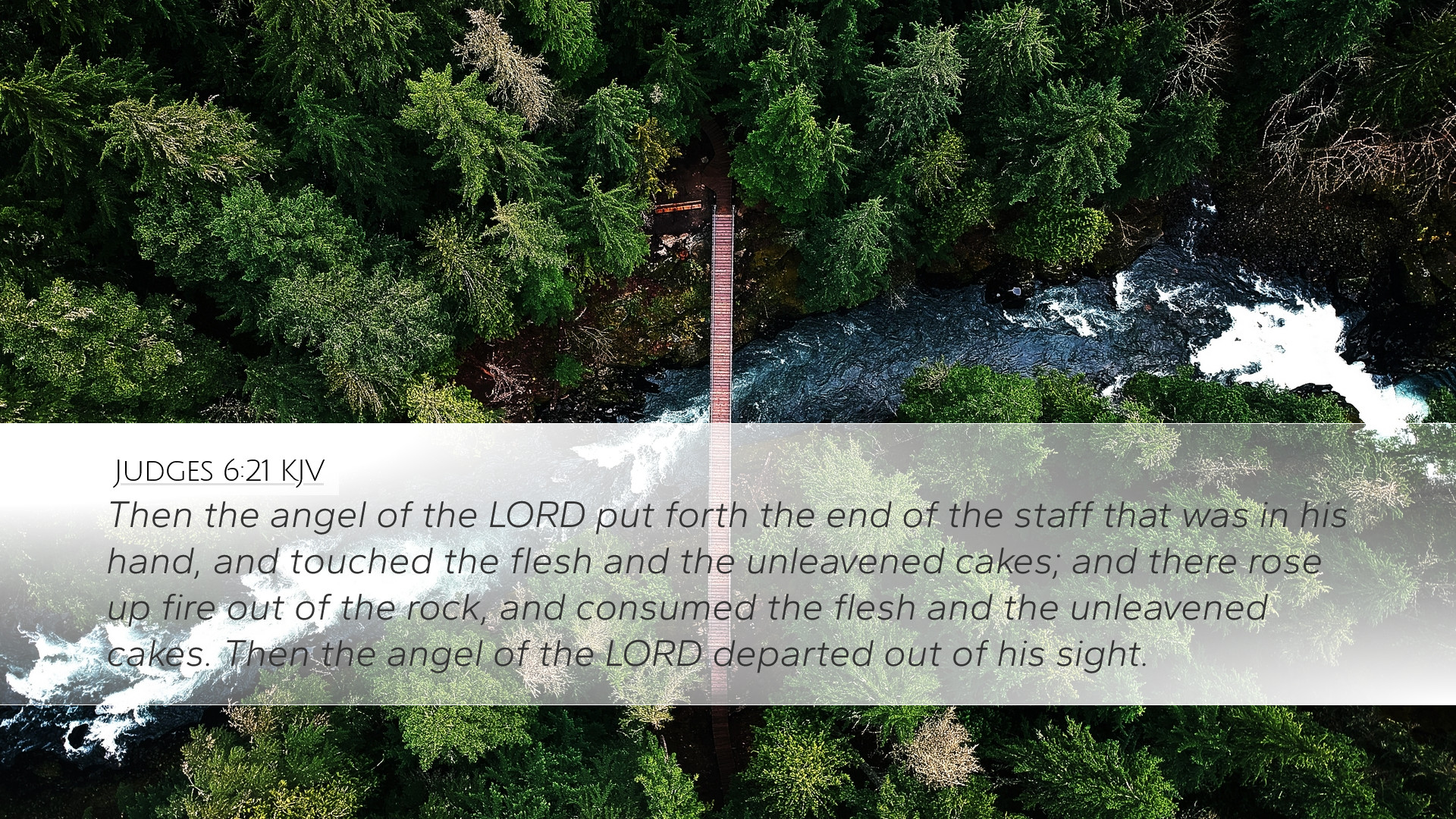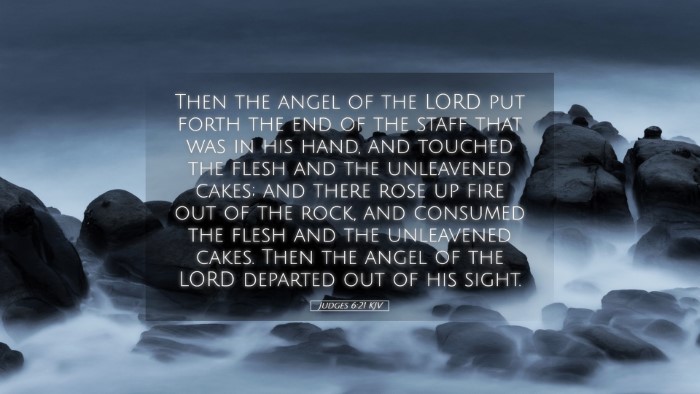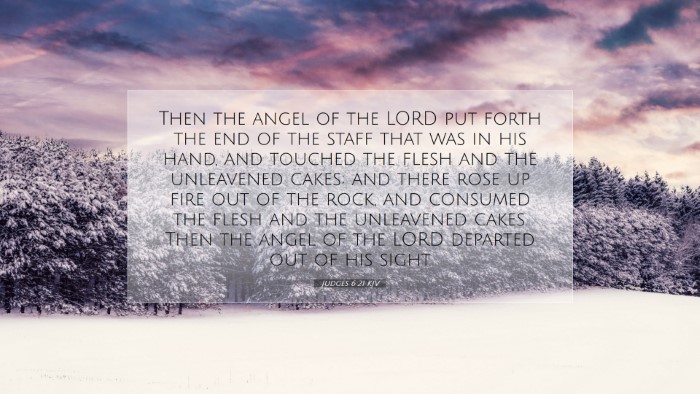Commentary on Judges 6:21
Verse Context: Judges 6:21 states, "Then the angel of the LORD put forth the end of the staff that was in his hand, and touched the flesh and the unleavened cakes; and there rose up a fire out of the rock, and consumed the flesh and the unleavened cakes. Then the angel of the LORD departed out of his sight."
General Overview
This verse captures a pivotal moment in the narrative of Gideon, a key figure in Israel's history during the time of the judges. It reflects the divine initiation of Gideon's calling, serving as a profound manifestation of God's presence and power.
Insights from Matthew Henry
Divine Revelation: Matthew Henry emphasizes the significance of the angel of the LORD being a pre-incarnate Christ, highlighting that the encounter with Gideon is not only a divine visitation but also an affirmation of God's purpose. This theophany demonstrates God's willingness to engage with humanity on a personal level.
Fire Symbolism: Henry points out that the fire which consumed the offerings symbolizes the divine acceptance of Gideon's sacrifice. Fire often represents God's holiness and presence, indicating that the Lord is calling Gideon to a sacred mission despite his humble beginnings.
Insights from Albert Barnes
Immediacy of God's Response: Albert Barnes notes that the act of the angel touching the offerings with his staff signifies God's immediate acceptance and approval. Barnes elaborates on the idea that God's presence can transform simple offerings into a medium of profound divine confirmation.
Sacrifices in Worship: Barnes emphasizes that the offerings made by Gideon represented both a physical act of worship and a spiritual acknowledgment of God's supremacy. The unleavened cakes denote purity and an uncorrupted heart, essential for true communion with God.
Insights from Adam Clarke
Significance of the Rock: Adam Clarke provides an intriguing interpretation regarding the rock from which the fire arose. He suggests that the rock denotes Christ, as He is the Rock of Ages, and out of Christ flow the blessings and fiery zeal of the Spirit. Clarke notes that God often works through physical symbols to convey His spiritual truths.
Gideon's Fear: Clarke also expresses concern about Gideon's initial reaction post-encounter, noting that fear often accompanies divine encounters. He interprets Gideon’s fear of dying after seeing the angel as a testament to the holiness and power of the divine presence often experienced by those who encounter God.
Theological Reflections
This encounter encapsulates major theological themes, including:
- The Nature of God: God is both transcendent and immanent; He exists beyond the universe yet engages intimately with His creation.
- The Call to Ministry: God often calls unlikely candidates for His service, highlighting His grace and the idea that effectiveness in ministry is not based on human strength.
- The Role of Sacrifice: Sacrifice in the Old Testament indicates a deep relationship with God, reflecting our need for divine acceptance and fellowship.
Applications for Today’s Believer
Modern believers can draw several applications from Judges 6:21:
- Embrace God’s Call: Just as Gideon was called despite his insecurities, believers today should be open to God's calling, regardless of perceived limitations.
- Recognize Divine Presence in Worship: Worship should involve heartfelt offerings, seen as sacred moments where individuals expect God's divine interaction.
- Understand the Meaning of Fear in Worship: A healthy fear of the LORD acknowledges His holiness and power, which is essential for genuine worship and service.
Conclusion
Judges 6:21 is not merely an account of an encounter with an angel but a profound intersection of the divine with human frailty. It serves as a reminder of God’s desire to actively engage with His people, calling them to significant roles within His redemptive plan.


